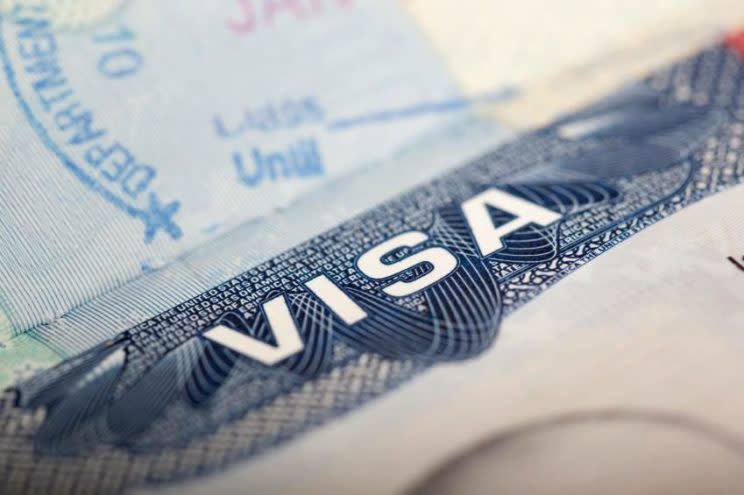The diminishing foreign dreams: Countries that are overhauling their visa programmes

That Indians have benefited from an increasingly globalised world, is a given fact. Foreign degrees and high paying jobs abroad have been part of the classic Indian dream. However, with the rising nationalistic and protectionist attitudes which many countries are adopting, more Indians are finding this dream under threat. One of the forerunners of this nationalistic pitch, US President Donald Trump’s main rhetoric throughout his campaign, and after assuming power, has been to bring back jobs to Americans. The President has vowed to rebuild America using American hands, and has urged Americans to ‘Buy American-Hire American’. With the US market accounting for 60 percent of India’s exports, the move has unnerved the Indian IT sector and Indians residing in the US. On April 18, President Trump signed an executive order to overhaul America’s H-1B visa programme which allows foreign employees to work in the US for up to six years. The order aimed at ending the “theft of American prosperity,’ which according to Trump, has been caused by low-wage immigrant labour. This has led to many Indian looking for jobs in other countries, and exploring the possibility of returning to India.
However, it is not just the US that has upped its nationalistic, ‘Hire Local’ call. A number of countries have also changed their student and work visa policies to make it harder for Indians to work and settle in their countries. We take a look at these countries:
Singapore: A country which has a large number of Indian population, and even a Little India, Singapore jumped into the protectionist bandwagon soon after the USA did. Since 2014, the Singapore Government has increased the minimum wage eligibility for applying to a particular job. It has asked companies to search for resources within the country, before applying for work permits. In 2015, the country also adopted the Fair Consideration Framework, which details fair hiring requirements for companies in Singapore. Among other requirements, it states that Companies must be open to Singaporeans and advertise locally. Singapore has also been withholding decisions on work permit applications from Indian companies, since February 2016. According to Nasscom, the number of Indians on work permit in the South East Asian country has reduced to 10,000. In response to this, the Indian Government has put on hold a review of the Comprehensive Economic Cooperation Agreement, citing violations to the trade pact.
Australia: Australian Prime Minister Malcolm Turnbull also announced recently that it will abolish a temporary work visa called the 457 visa which allows companies to sponsor skilled foreign talent for up to four years, and has been popular with foreign workers. In a Facebook post, PM Turnbull announced that the reforms will have a simple focus, “Australian jobs and Australian values.” Underlining that Australian workers must have priority for jobs in the country, the PM said that he will not allow the 457 programme to be used as a passport for getting jobs in the country. The scrapped visa programme has been through much controversy, with companies using it to bring in cheap and lesser skilled, labour. A new visa programme that will come in place of this, will be limited to a two year period, and will require applicants to have better English language skills and job skills.
Canada: Canada, which was one of the main markets for India’s IT brain exports, had overhauled its Temporary Foreign Work Programme (TFWP) after allegations that several companies, such as McDonald’s, were replacing local workers with foreign labour. This led to the Government laying down new rules in 2014, which increased the cost of bringing foreign workers into the country, along with setting up more complicated and elaborate questionnaires. The country, however, is emerging as a preferred choice over the USA in the Trump era.
New Zealand: As soon as Australia announced its decision to cut down on visas, its Kiwi neighbor, New Zealand, also upped the nationalistic pitch. In a Kiwis-First approach, New Zealand has announced plans to tighten access to skilled visas, and is looking at attracting people with the right skill sets. Changes under the overhaul include raining the the income threshold to be classified as a skilled migrant to nearly NZD 50,000 (approximately INR 22 lakhs) a year, restricting work visas for low skilled workers to three years, and classifying anyone earning NZD 73,000 and above as high skilled. India has constantly been among the top three sources of migrants to New Zealand, and while the changes may not affect Indians drastically, it could make it more difficult for those seeking to work in the country.
UK: A country that has a huge Indian population – immigrants, students and skilled workers, UK has constantly seen its visa policies being reviewed and tightened. In 2012, the country scrapped its post study work visa which allowed students to remain in the country for two years, and in 2015 it had increased the minimum amount that students must maintain in their banks by 24 percent. The country also introduced new rules on April 6, 2017. This involved changes to the Tier 2 Short Term Intra-Company Transfers – a route used by Indian and other non EU countries, to bring workers into the UK. According to the new rules, companies in the UK hiring non local workers will have to pay an additional GBP 1,000 ‘Immigration Skills Charge,’ and a reduced rate of GBP 364 for small or charitable organisations. This, according to the UK Home Office, is to reduce the number of businesses taking in migrant workers, and incentivise them to train British staff to fill positions. Skilled migrants applying under this category will also have to provide a criminal record check certificate from any countries they have lived in the for more than 12 months. The minimum salary level for experiences workers under the Tier 2 (General) scheme has also been increased from GBP 25,000 to GBP 30,000.

 Yahoo Finance
Yahoo Finance 